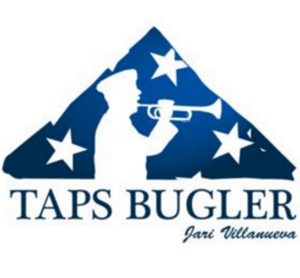John Philip Sousa (November 6, 1854-March 6, 1932)
NPR story on Sousa’s 150th Birthday

November 6, is the birthday of one of my heroes, John Philip Sousa (1854-1932). Most remember him for his marches they may have played in school or from hearing the “The Stars and Stripes Forever” during Independence Day celebrations. Many recall the almost caricaturistic portrayal of him in that 1952 American biographical film. What is interesting to me Sousa originally began his musical career as a songwriter. If anything he wanted to be the next Arthur Sullivan or Victor Herbert. He began his conducting career as a music director for a production of HMS Pinafore (he also did the orchestrations which were complimented by Sir Arthur) in Philadelphia. After failures in the operetta field and his appointment as Director of the US Marine Band, his attention turned to band music and to writing marches. All in all he produced hundreds of marches, works for band, transcriptions, songs, operettas, medleys and was responsible for collecting nations anthems and patriotic airs from all nations to be performed by the Marine Band in protocol settings.
Paul E. Bierley, who spent a lifetime researching Sousa, stated, “Although Sousa is stereotyped as a march composer, he composed music of many forms, including 15 operettas. Among his many original works for band are suites, humoresques, fantasies, descriptive pieces, and dances. In addition to the over 200 songs of his operettas, he composed 70 other vocal works, and many of these vocal works wee transcribed for use with the Sousa Band. The musical philosophy, which stimulated his composing, (“I would rather be the composer of an inspired march than of a manufactured symphony.”) is reflected in all of his works. Basically a humble, deeply religious man, he composed only upon genuine inspiration and repeatedly stated that his melodies came from a “Higher Power.”
However, Sousa’s contributions to American music and our culture as a whole cannot be underestimated. He was one of America’s greatest “Superstars” in an era before that term was even born. He was a consummate professional in every musical aspect of his life. He was an athlete participating in baseball, boxing, horseback riding and trapshooting. He championed copyright laws for musicians helping create the American Society of Composers, Authors and Publishers (ASCAP). He lobbied for better pay and recognition for military bandsmen. Sousa’s testimony before congress helped with adopting the “Star-Spangled Banner” as our National Anthem. He was an author of many books and plays in addition to his serious compositions for orchestra and opera stage.
Sousa was a unabashed symbol of patriotism, discipline, and Victorian respectability and order in an age of rapid social change. His popularity rose concurrently with the rise of American imperialism and commercialism in the late 19th century. Sousa Band concerts provided a vibrant outlet for nationalism while enhancing American prestige, for Sousa stressed American composers and uplifted the reputation of American music. His image was much the result of the mass publicity efforts and promotional techniques of professional managers like David Blakely who advertised his client with illustrated posters, magazine and newspaper articles, photographs, and local interviews. In an age preceding radio and the high-fidelity phonograph, Sousa provided countless Americans with their first experience of professional music.
Neil Harris in his article, John Philip Sousa and the Culture of Reassurance (https://www.loc.gov/item/ihas.200152753/)
writes, “John Philip Sousa and his America seemed made for each other…. His image evokes strutting drum majors, band concerts on soft summer nights, strolling couples, playing children, tranquil and reassuring evocations of a time of well-ordered pleasures… To extract simply the marching tunes from his rich contemporary reputation is to lessen his impact and to dilute his goals. He took himself seriously (and so others took him) as a bridge between cultural communities. And as an instrument to lessen the forbidding awe felt for creative genius. The Sousa performance did more than merely display his marches to advantage. It was an occasion on which to reassure and conciliate an ambitious if unsophisticated public. We no longer have the performances; we do have the marches. If the legacy is reduced, it is no less real.”
Sousa’s love for his country went beyond his music. When America entered World War I he left his touring band (at age 62) to run the Navy music program at Great Lakes Training Center opting to receive two dollars a month for his services. He worked with 300 young men training them for duty in fleet bands and was discharged as a Lieutenant Commander. Naval Reserve. He wore that uniform proudly for the rest of his life, even being buried in it.
If we remember one single piece of music from John Philip Sousa it would be his “The Stars and Stripes Forever” which was adopted as our National March. You can read about that march in “John Philip Sousa’s Christmas Gift to the United States” at https://goo.gl/KrDttQ
Happy Birthday John Philip Sousa! Just like the flag of the free may your music be our standard forever!


Beautiful article! Love Sousa Marches! Thank you!